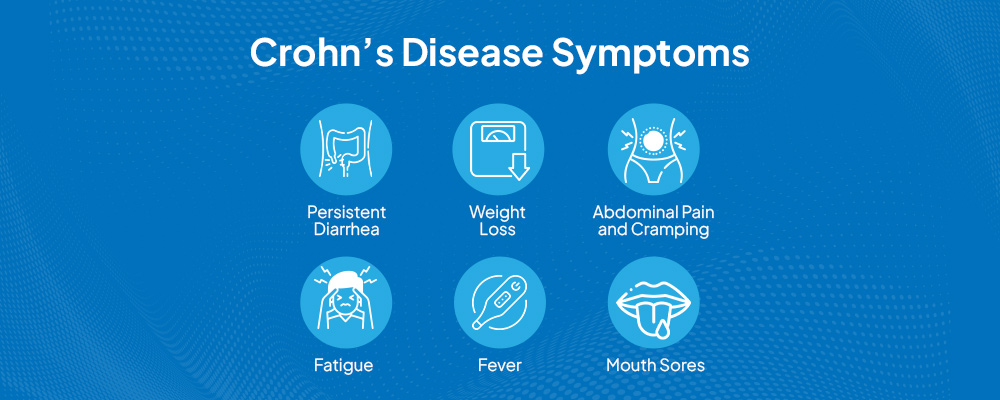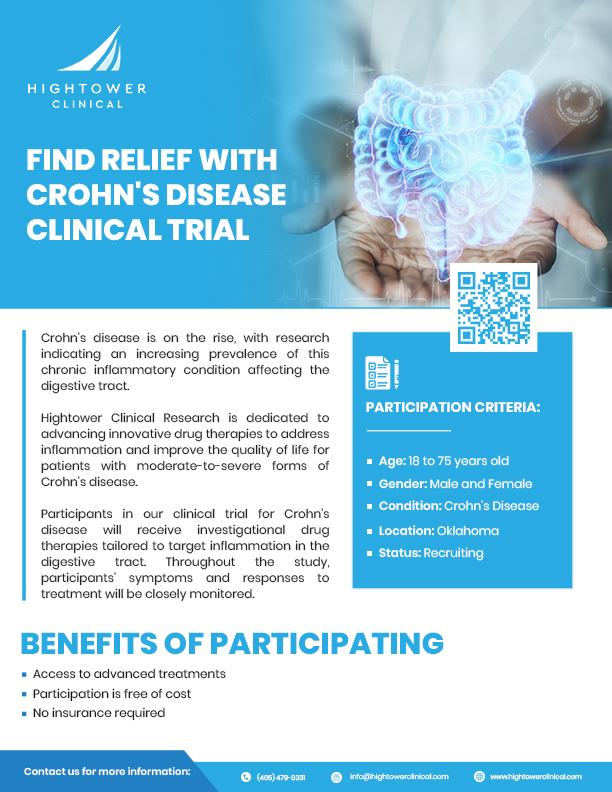Crohn’s disease is a chronic inflammatory bowel disease (IBD) that impacts the digestive tract. Additionally, it can cause severe symptoms, including abdominal pain, diarrhea, and weight loss, significantly affecting quality of life. However, many people wonder, is Crohn’s disease fatal? The answer is complex, depending on the severity of the condition, the management approach, and complications.
Therefore, this blog explores what Crohn’s disease is, its causes, symptoms, treatments, and whether it can be life-threatening. Additionally, we include recent statistics and research findings to provide a clearer understanding of this condition.
Understanding Crohn’s Disease
Crohn’s disease is an autoimmune disorder where the immune system mistakenly attacks healthy tissue in the gastrointestinal (GI) tract. Moreover, it can affect any part of the GI tract, from the mouth to the anus, though it most commonly impacts the small intestine and colon.
Though, the disease is characterized by periods of flares, where symptoms worsen, and remission, where symptoms diminish. However, Crohn’s is not contagious, and its exact cause remains unknown.
How Common is Crohn’s Disease?
According to the Centers for Disease Control and Prevention, over 3 million adults in the United States have been diagnosed with IBD, including Crohn’s disease and ulcerative colitis. Worldwide, the prevalence of IBD is increasing, with Crohn’s disease becoming more common in developing regions due to urbanization and dietary changes.
However, recent studies estimate that around 10-20 per 100,000 people are diagnosed with Crohn’s annually. The condition usually begins between the ages of 15 and 35, although it can develop at any age.
Symptoms of Crohn’s Disease

In addition, the symptoms of Crohn’s disease vary depending on the area of the digestive tract affected. Common symptoms include:
- Persistent Diarrhea: Firstly, this can sometimes be bloody.
- Abdominal Pain and Cramping: Secondly, particularly in the lower right abdomen.
- Weight Loss: Thirdly, caused by malabsorption of nutrients.
- Fatigue: Fourthly, chronic tiredness is common.
- Fever: Lastly, low-grade fevers during flares.
- Mouth Sores: Additionally, ulcers in the mouth may develop.
In severe cases, Crohn’s can lead to complications such as intestinal blockages, fistulas, and severe malnutrition.
Is Crohn’s Disease Fatal?
Is Crohn’s disease fatal? In most cases, Crohn’s is not directly fatal. However, severe complications can lead to life-threatening situations. These include:
- Bowel Obstructions: First and foremost, chronic inflammation can cause scar tissue that blocks the intestine.
- Fistulas: Second, abnormal tunnels between the intestine and other organs.
- Sepsis: Additionally, infections from fistulas or abscesses can become fatal if untreated.
- Colon Cancer: Finally, long-term inflammation increases cancer risk, particularly in patients with Crohn’s disease affecting the colon.
A 2022 study published in The Lancet Gastroenterology & Hepatology found that with modern treatments, life expectancy in Crohn’s patients has improved significantly. However, individuals with severe complications may still face challenges.
What Causes Crohn’s Disease?
Nonetheless, exact cause of Crohn’s disease is not fully understood, but researchers believe it results from a combination of factors:
- Genetics: A family history of Crohn’s increases the risk. Specific genetic markers, like the NOD2 gene mutation, have been linked to the disease.
- Immune System Dysfunction: An overactive immune response targets the GI tract, leading to chronic inflammation.
- Environmental Triggers: Smoking, diet, and stress may worsen symptoms.
- Gut Microbiome Imbalance: Changes in gut bacteria composition can contribute to inflammation.
How is Crohn’s Disease Diagnosed?

While, diagnosing Crohn’s disease involves a combination of tests and procedures, some of them include
- Blood Tests: To detect anemia or inflammation.
- Stool Tests: To rule out infections causing symptoms.
- Endoscopy or Colonoscopy: Visualizes inflammation and collects tissue samples.
- Imaging Tests: CT or MRI scans help identify fistulas, strictures, or other complications.
However, early diagnosis is crucial to managing the disease and preventing complications.
Treatment Options for Crohn’s Disease
While there is no cure for Crohn’s disease, treatments aim to control inflammation, relieve symptoms, and prevent complications.
1. Medications
- Anti-Inflammatory Drugs: First, reduce inflammation during flares.
- Immunosuppressants: Second, suppress the immune response.
- Biologics: Last, target specific molecules involved in the inflammation process.
2. Lifestyle Changes
- Moreover, quitting smoking improves outcomes significantly.
- Additionally, managing stress reduces flare frequency.
3. Dietary Adjustments
- A low-residue or low-fiber diet can help during flares.
- Nutritional supplements prevent deficiencies.
4. Surgery
Surgery may be necessary for complications like strictures, fistulas, or perforations.
Join the Fight Against Crohn’s Disease Through Clinical Trials
Be part of groundbreaking research in Crohn’s disease! Hightower Clinical is exploring investigational treatments to evaluate their safety and effectiveness in treating moderate to severe cases of crohn’s disease. If you or a loved one is struggling with Crohn’s, this is your chance to contribute to the discovery of potential life-changing therapies. Click below to learn more and enroll!
Recent Advances in Crohn’s Disease Treatment
Advances in biologic therapies have revolutionized Crohn’s disease treatment. Nevertheless, drugs like infliximab and adalimumab target specific pathways of inflammation, improving outcomes.
Research from 2023 in Nature Medicine suggests that gut microbiota transplantation could hold promise for Crohn’s patients unresponsive to traditional therapies. However, early trials showed a 50% improvement in symptom severity.
Living with Crohn’s Disease
Managing Crohn’s disease requires lifestyle adjustments. However, patients should focus on:
- Balanced Diet: Avoid foods that trigger symptoms, such as dairy or spicy meals.
- Regular Exercise: Low-impact activities like yoga can improve overall health.
- Hydration: Stay hydrated, especially during diarrhea episodes.
- Support Networks: Connecting with others with IBD can provide emotional support.
Preventing Crohn’s Disease Complications
To prevent severe complications, individuals should:
- More importantly, follow their treatment plan diligently.
- Secondly, schedule regular check-ups with their doctor.
- Thirdly, monitor symptoms and report changes immediately.
- Lastly, stay up to date on screenings, especially for colon cancer.
Statistics on Crohn’s Disease and Mortality
Although Crohn’s disease itself is not usually fatal, data from the Crohn’s & Colitis Foundation shows that:
- About 70% of Crohn’s patients will require surgery within 20 years of diagnosis.
- However, the risk of colorectal cancer is 2-3 times higher in Crohn’s patients with prolonged inflammation in the colon.
A 2021 study in Gastroenterology highlighted that with early diagnosis and biologic therapy, the 5-year survival rate for Crohn’s disease patients exceeds 90%.
Is Crohn’s Disease Fatal Without Treatment?
If untreated, Crohn’s disease can lead to severe complications that may be life-threatening, such as bowel perforation, sepsis, or cancer. Furthermore, regular monitoring and adherence to treatment plans are critical to minimizing risks.
Conclusion
So, is Crohn’s disease fatal? While the disease itself is not usually fatal, its complications can pose significant risks if left untreated. Moreover, advances in diagnosis and treatment have improved the prognosis for most patients.
By staying informed, adhering to treatment, and maintaining a proactive approach to health, individuals with Crohn’s disease can lead fulfilling lives. Nevertheless, with ongoing Crohn’s disease clinical trials in Oklahoma City and innovative therapies, the future for Crohn’s disease patients looks brighter than ever.





